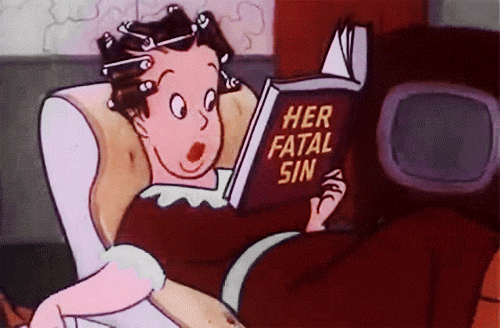How to talk to your partner about ED.
Having ED can be a challenging, anxiety-provoking issue -- but there are solutions.
[This newsletter will always be free to read, but it’s also how I supplement bills and such - which allows me the flexibility to bring you the best possible sex education every week. So, if you like what you read, please consider a paid subscription.]
Hey babe,
Look, erectile dysfunction happens.
Study after study has shown that 1 in 3 male-bodied people will experience erectile difficulties at some point in their lives. And, as penis-owners age, this percentage increases to 50 percent. ED is a very common phenomenon.
Kristine D’Angelo, a certified sex coach and clinical sexologist, told me via email that she prefers to define ED as “erectile disappointment,” rather than as a “dysfunction.”
Why? Because calling it a dysfunction is actually pretty pathologizing and can make people feel like they have some kind of horrible disease, rather than a very human and normal problem with their boners. She highlights the “disappointment one could potentially feel when they experience their body’s inability to get an erection. Medical professionals and some sex therapists refer to ED as erectile dysfunction and for some it is a dysfunction but for others it’s a disappointment and doesn’t necessarily need the label as a dysfunction.” Language matters and being able to define it in a way that feels less hopeless or intense can make a difference in how we feel about it.
With this in mind, you might be wondering: How do I talk to my partner about this? And that is a very good question – because ED isn’t something you can just ignore and hope it’ll sort itself out. It needs to be addressed with kindness, empathy, and understanding.
So, if you’re experiencing erectile disappointment and want to know how to have open and honest conversations with your partner about what you’re going through, look no further. I’ve wrangled some of the leading experts in the biz to help guide us.
What ED actually is.
Before we dive into broaching the conversation on ED, we have to get clear about what erectile dysfunction actually is. According to John Hopkins University, medically speaking, erectile dysfunction is defined as “as the persistent inability to achieve or maintain penile erection sufficient for satisfactory sexual performance.”
If you have ED, it means you have trouble getting or maintaining a hard-on during most or all sexual activity with a partner – and that this happens consistently over a long period of time. People with penises can have trouble getting or maintaining an erection for so many different reasons, but it is only considered erectile dysfunction if it happens on the reg.
Why discussing ED with a partner is important.
It might seem easier to just ignore the issue, rather than address it, but this actually isn’t going to work in the long-term. Pretending a problem doesn’t exist doesn’t fix the problem, ya know? “A lot of people shy away from talking about ED and other sexual issues as they feel ashamed, but ironically this only increases our sense of disconnection from our partners and ourselves,” explains Pam Shaffer, MFT, a licensed marriage and family therapist.
Here is the no-frills kicker: Erectile dysfunction doesn’t just affect the person who is having the problems with the erections – D’Angelo says that it impacts everyone inside of the relationship. This is important to understand because it can help us address the issue as a team, rather than simply pointing to the penis-owner and saying “you have a problem, so go and sort yourself out.”
“Talking about ED can help your partner understand what is happening so you can work together to address it instead of letting it spiral into a bigger problem or driving a wedge between you,” Shaffer says. When we address ED management in a collaborative way, we’re going to be much better equipped to find workable solutions.
4 expert-approved ways for couples to have difficult conversations in a constructive way.
And now we come to what we’ve all been waiting for: How in the heck do we even approach the topic of erectile dysfunction with our partner? Luckily, I asked our experts for some of the best strategies you can use to elicit positive outcomes from these discussions with your partner.
1. Timing and tone are everything.
“Check in with your partner if it’s a good time to talk,” Shaffer says. You want to come to this conversation with intentionality. Have the conversation outside of the bedroom, when you’re both feeling calm and connected. Set aside enough time to talk it through.
You also want to consider the tone you’re setting for the discussion. “Set the conversational tone for an intimately-safe, non-judgemental and shame-free space to have these conversations,” D’Angelo says. “Let each other know that whatever you share, feel or express is OK and you’re here to support them during these conversations.”
2. Take ownership.
It’s important to take ownership of your feelings in the situation, rather than pointing the finger at your partner. “Use ‘I’ statements that highlight your feelings or experience so that your partner understands that you are sharing something vulnerable,” Shaffer says.
Examples to get you started:
I am feeling sensitive about the fact that I can’t stay hard.
It makes me feel X when I can’t sustain an erection.
I want us to have a really great sex life, but I feel like my ED is getting in the way. I’d like it if we could work to find some solutions that would work for both of us.
I am really embarrassed that I am struggling when we have sex. I want to go to the doctor but it’s scary to even think about making the phone call.
“You can then both agree to go forward with the conversation or set up a time together so you can really be there for each other,” Shaffer adds.
3. Invite your partner into the conversation.
Remember that this is a collaboration, not a one-sided game.
Examples to get you started:
I hope you know I still feel the same way about you, even if I am struggling with ED. How are you feeling hearing this?
How do my issues with staying hard impact you? I want us to be a team on this.
I can understand if this is a difficult conversation to have, but how are you receiving what I’m sharing?
“Your insights and questions help your partner empathize with your perspective and give them the chance to support you,” Shaffer tells us.
4. Take the pressure of the erection.
Possibly one of the most important things in ED treatment is for partners to take the emphasis off erections being necessary to experience pleasure and intimacy. When we put pressure on our ability to maintain an erection, we are likely to experience performance anxiety and not be able to maintain the erection. It’s a bit of a “snake eating its own tail” situation.
Instead, D’Angelo says we should focus on pleasure. “If you’re both focusing on pleasure, you start making decisions based on what feels good and that’s an embodied state-of-mind.”
With this in mind, start considering alternative ways that both you and your partner can experience fulfilling sexual experiences without the need for erections. Once you’ve shifted the way you think about what great sex can be, you’re setting yourself up for success.
Erection problems can happen to the best of us. It’s when we come to the issue as something we’re facing together and consider the vast and varied ways pleasure can be experienced without a hard dick that we start to see the real magic happen.
This week’s mantras:
I am more than my penis and what my penis can or cannot do.
Pleasure is the true measure of good sex.
I will love myself.
I love you. Have a great week!
XOXO Auntie Gigi
This newsletter originally appeared on COSMO
~Good ReadsSsSssSsSs~
A new term for you this week: Abrosexuality. This refers to someone who's sexuality and sexual attraction is fluid and changes over time. This means they may go through periods of being attracted to different genders, same genders, both, or even go through periods without any sexual attraction. Basically, it just means the way you're attracted to people is fluid and shifts. I told Women’s Health all about it this week. Read more. — WOMEN’S HEALTH
Apparently a quarter of Londoners think that monogamy is no longer realistic. Is the the landscape of modern relationships about to change? Read more. — THE STANDARD
Keeping intimacy alive in relationships can be a challenge … but it doesn’t have to be that hard! I loved this advice in Good Housekeeping on how to keep things poppin’. Read more. — GOOD HOUSEKEEPING
Weekly LOL
The way this made me laugh fr.
That’s it for me this week, pals. I love you.







As a penis-bearer, “disappointment” is a far less appealing term than “dysfunction.” There’s no shame in the latter because it becomes less personal, out of my hands, not caused by me as a person. The former turns the partner into a parent, teacher or boss saying, “I’m SO disappointed in you. You’re just not putting in the effort.”
Yes of course to the conversation, because obviously there is disappointment happening all around.